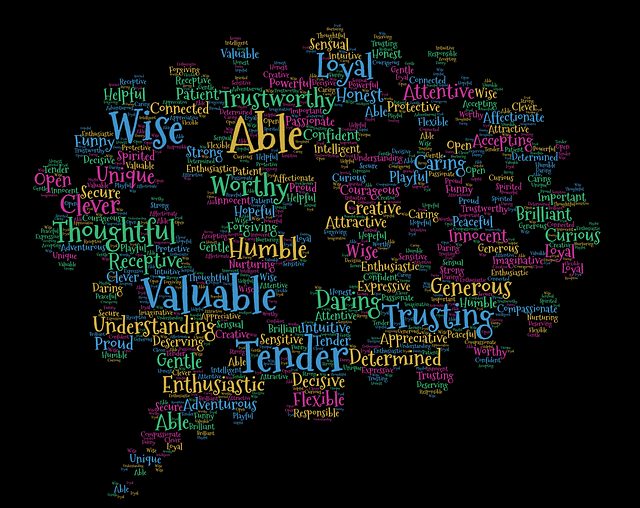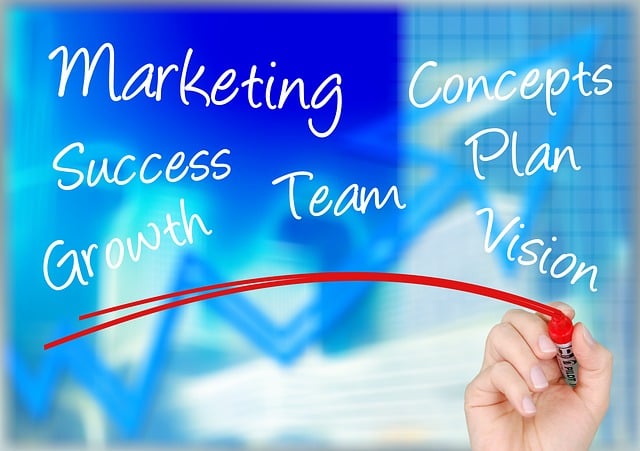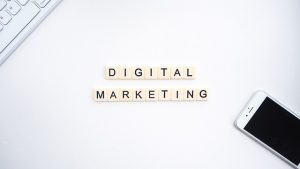The Marketing Leadership Summit highlighted the rapid integration of AI into modern marketing strategies as a core component for business-customer engagement. Marketers are leveraging AI tools for in-depth consumer behavior analysis, personalized content creation, and campaign optimization to maximize impact, enhancing efficiency, creativity, and quick decision-making. The future of marketing heavily relies on AI's ability to deliver hyper-relevant experiences, driving growth and competitive advantage.
However, the summit also emphasized ethical considerations such as bias and privacy concerns with AI technologies. It encouraged holistic integration of AI with traditional strategies for strategic decision-making and campaign optimization. Measuring success in AI-driven campaigns requires advanced KPIs like attribution modeling, ROAS, and lifetime value of a customer.
Additionally, building an AI-centric marketing team with a balance of technical skills, strategic thinking, and ethical considerations is crucial for maximizing AI potential. Case studies revealed global brands successfully implementing AI in personalized experiences, automated content creation, and predictive analytics, emphasizing the urgency for marketers to embrace innovation for sustained competitiveness.
Join us as we explore the future of marketing at the AI in Marketing Summit, a premier gathering for industry leaders seeking to unlock the transformative power of artificial intelligence. From personalization enhancing customer engagement to predictive analytics revolutionizing campaigns, this summit delves into the evolving role of AI in modern marketing strategies. Discover successful case studies from global brands and gain insights on ethical considerations, machine learning algorithms, creative AI in brand storytelling, integration with traditional marketing, measuring ROI, and building an AI-centric team.
The Evolving Role of AI in Modern Marketing Strategies

At the Marketing Leadership Summit, a prominent theme is the rapid evolution of AI in modern marketing strategies. Artificial intelligence is no longer a futuristic concept but an integral part of how businesses engage with their customers. Marketers are leveraging AI to gain deeper insights into consumer behavior, personalize content, and optimize campaigns for maximum impact.
AI-driven tools enable data analysis at scale, allowing marketers to make informed decisions quickly. From predictive analytics that anticipate customer needs to automated systems that handle routine tasks, these innovations enhance efficiency and creativity. As the summit highlights, the future of marketing is heavily reliant on AI’s ability to deliver hyper-relevant experiences, ultimately driving growth and competitive advantage for forward-thinking organizations.
Unlocking the Potential: AI-Driven Personalization for Enhanced Customer Engagement

At the Marketing Leadership Summit, a prominent focus was on unlocking the transformative power of Artificial Intelligence (AI) for personalized marketing strategies. AI offers an unprecedented level of customer understanding, enabling marketers to deliver tailored experiences at scale. By leveraging machine learning algorithms, businesses can analyze vast amounts of consumer data to identify intricate patterns and preferences. This insights-driven approach allows for hyper-personalized content creation, product recommendations, and targeted campaigns, fostering a deeper connection with each individual customer.
The potential of AI-driven personalization is immense, especially in today’s competitive market. It goes beyond basic demographics, delving into behavioral trends, purchase histories, and even emotional responses to brand interactions. Such granular insights empower marketers to anticipate customer needs, creating a sense of personalized service that was once unattainable. As the summit highlighted, embracing AI technologies is not just about staying relevant; it’s about revolutionizing customer engagement and solidifying brand loyalty in an increasingly digital world.
Ethical Considerations: Navigating Bias and Privacy Concerns in AI Marketing

As AI continues to transform marketing strategies at the Marketing Leadership Summit, it’s crucial to address ethical considerations surrounding its implementation. One significant concern is bias, as algorithms can inadvertently perpetuate existing societal biases if not carefully designed and trained. This can lead to unfair targeting or representation of certain demographics in advertising campaigns. For instance, historical data used to train AI models might contain inherent biases that result in discriminatory outcomes. Marketing professionals must ensure transparency and accountability in AI practices to mitigate these issues.
Privacy is another critical aspect that requires attention. With AI processing vast amounts of consumer data, protecting user privacy becomes paramount. Companies should be transparent about data collection methods and usage, allowing individuals to have control over their personal information. Implementing robust data security measures and adhering to privacy regulations are essential steps in building trust with consumers. Ethical marketing practices ensure that AI technologies enhance customer experiences without compromising individual rights and freedoms.
Case Studies: Successful AI Implementatons in Global Brands

The Marketing Leadership Summit has been a beacon for industry professionals seeking to harness the potential of AI in their marketing strategies. Case studies presented at recent summits have showcased remarkable success stories from global brands who have integrated AI into their core marketing operations. These implementations range from personalized customer experiences through predictive analytics, to automated content creation that enhances efficiency and creativity.
For instance, leading consumer goods companies have leveraged AI-driven market insights to optimize product placements and pricing strategies, resulting in increased sales and brand loyalty. In the realm of digital advertising, AI has revolutionized target audience segmentation, enabling hyper-personalized ad campaigns that resonate with consumers at a deeper level. These successful AI integrations not only highlight the transformative power of technology but also underscore the necessity for marketers to embrace innovation if they wish to remain competitive in today’s dynamic market landscape.
Machine Learning Algorithms for Predictive Analytics in Marketing Campaigns

At the Marketing Leadership Summit, a spotlight was shone on the transformative power of Machine Learning Algorithms in predictive analytics for marketing campaigns. These algorithms have evolved to become indispensable tools, enabling marketers to anticipate consumer behavior and preferences with unprecedented accuracy. By analyzing vast datasets, from historical purchases to social media interactions, ML models predict trends, identify target audiences, and personalize marketing strategies down to individual customer levels.
This capability is revolutionizing how brands engage with their customers, fostering more meaningful relationships through tailored content and offers. Summit attendees were treated to insights on how these algorithms can optimize return on investment (ROI), enhance campaign effectiveness, and drive significant business growth in an increasingly competitive market.
The Future of Advertising: Creative AI and Its Impact on Brand Storytelling

The Marketing Leadership Summit has been a platform for industry experts to explore cutting-edge innovations, and one of the most exciting trends on the horizon is Creative AI. This game-changing technology is revolutionizing the way brands craft their stories and engage with audiences. By harnessing AI’s ability to analyze vast amounts of data and generate creative content, marketers can create personalized narratives that resonate deeply with consumers.
AI algorithms can now assist in developing compelling characters, crafting engaging plots, and even predicting audience responses. This not only enhances brand storytelling but also ensures that marketing efforts are tailored to individual preferences. As AI continues to evolve, it promises to empower marketers with innovative tools, making the future of advertising more dynamic, effective, and focused on building meaningful connections with consumers.
Integrating AI with Traditional Marketing: A Holistic Approach

At the Marketing Leadership Summit, a pressing topic of discussion revolves around integrating AI with traditional marketing strategies—a holistic approach that promises to transform the industry. Artificial Intelligence offers marketers unparalleled insights into consumer behavior, enabling them to create highly personalized campaigns. By leveraging machine learning algorithms, brands can analyze vast amounts of data, segment audiences precisely, and deliver tailored messages across multiple channels.
This fusion of AI and marketing goes beyond automated tasks; it fosters strategic decision-making. Marketers armed with AI-driven insights can optimize campaign performance in real time, ensuring every dollar spent yields maximum return. As the Marketing Leadership Summit underscores, embracing this holistic approach is not merely a competitive advantage but an imperative for staying relevant in today’s fast-paced digital landscape.
Measuring Success: Evaluating ROI and Key Metrics in AI-Powered Marketing

At the Marketing Leadership Summit, a key focus area is understanding how to measure success in AI-driven marketing campaigns. Traditional metrics like click-through rates (CTR) and cost per acquisition (CPA) are no longer sufficient. Instead, marketers must delve into more sophisticated Key Performance Indicators (KPIs). These include attribution modeling to understand the customer journey, return on ad spend (ROAS), and lifetime value of a customer, all of which provide a holistic view of AI’s impact.
Evaluating ROI in AI marketing requires a data-driven approach. By analyzing these metrics, businesses can make informed decisions about resource allocation and campaign optimization. The Marketing Leadership Summit aims to equip participants with strategies to navigate this complex landscape, ensuring they maximize the potential of AI while unlocking tangible business outcomes.
Building an AI-Centric Marketing Team: Skills, Tools, and Training

At the Marketing Leadership Summit, a key topic of discussion revolves around building an AI-centric marketing team. To thrive in this evolving landscape, marketers must possess a blend of technical skills and strategic thinking. This includes understanding machine learning algorithms, data analysis, and automation tools. However, it goes beyond just technical proficiency; effective team leaders should also foster creativity and ethical considerations surrounding AI implementation.
Training plays a pivotal role in preparing marketing professionals for this transition. Organizations should invest in comprehensive training programs that cover both AI fundamentals and advanced applications. Collaborating with AI specialists and staying updated with industry trends can significantly enhance the team’s capabilities. Additionally, continuous learning through workshops, webinars, and certifications ensures that marketing leaders and their teams remain at the forefront of AI innovation, enabling them to leverage these powerful tools for maximum impact during the Marketing Leadership Summit and beyond.
